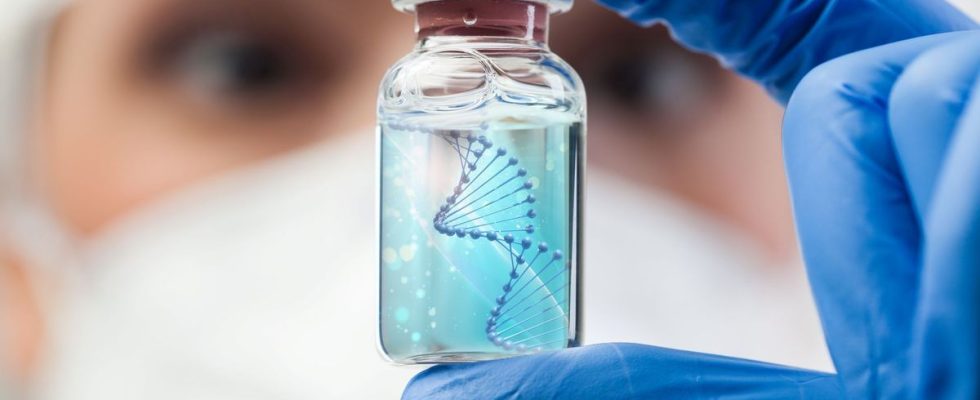Published on
Updated
Reading 3 min.
Appearing shortly after widespread vaccination against Covid 19, the “turbo-cancers” theory believes that messenger RNA vaccines promote the appearance and/or accelerate the development of cancers. This thesis has recently reappeared in public debate.
For several months, the theory according to which messenger RNA vaccines accelerate the appearance of cancer has flourished on social networks. The non-medical term “turbo cancers” has even been used to refer to very aggressive or “rapid” cancers, occurring just after vaccination.
The theory of “turbo-cancers” relaunched by Nathalie Marquay and Professor Raoult?
It has just been relaunched by the interview with Nathalie Marquay-Pernault, whose husband, Jean-Pierre Pernault, died after having 13 strokes. She had refused to allow her husband, then undergoing treatment for lung cancer and undergoing radiotherapy, to receive a third dose of vaccine.
The former director of the IHU of Marseille, Professor Didier Raoult, was also questioned about this link by Pascal Praud, on Cnews, on January 12. He explains that hethere is indeed a link between vaccine against covid-19 and development of lymphomas” due to the production of alternative proteins induced by messenger mRNA vaccines. A consequence according to him of “tinkering made to make RNA last longer” which “created unknown proteins that wander around the body and we don’t know what they do.”
Have mRNA vaccines accelerated the occurrence of cancer?
At the time of the controversial publication of her book “Sorcerers’ Apprentices”, Alexandra Henrion-Caude mentioned the absence of carcinogenicity studies for RNA vaccines. Comments that she made clear to us in March 2023: “Cancers in young people under 50, liver and gastrointestinal cancers are on the rise and the oncologists I know are seeing this on their scale. Certainly at this stage, it is an alert, which I do not really talk about in the book except to recall that these vaccines have not had any carcinogenicity or genotoxicity studies and while we know that everything vaccine has undesirable effects, for these everything is denied outright and the words of those who try to warn are confiscated”.
Doctissimo also gave the floor to a medical researcher, who gave his point of view on the question. Faced with the virulence of the debates and witchcraft trials, he preferred to remain anonymous.
“As a medical researcher, I must maintain a certain ethics and not fall into unfounded theories. In implementing this vaccine, with the existing uncertainties, the risk-benefit balance had to be assessed for each patient, favoring vaccination of people who would benefit the most from receiving it. We must recognize the uncertainties we have in the short, medium and long term and remain intellectually honest. We cannot deny or minimize existing safety signals. It is therefore indeed plausible that cancer is accelerated by vaccination, or for example via a immune system disruptionbut this is not possible to affirm without additional studies” he detailed, also confiding that he had seen people in his practice whose illness accelerated after vaccination.
Two camps confront each other and radically oppose each other
Other scientists argue the opposite and assure that the “turbocancer” theory has no basis. In a column dated last March, published in the Expressthe theory was thus denounced by around fifty scientists: “In conclusion, to date no alert link has been published between an increased incidence or risk of rapid progression of cancer after anti-Covid-19 vaccination or after another vaccination. We therefore wish once again to reassure our patients. No, there is no risk of worsening of the disease or relapse linked to the vaccine. No, vaccination against Covid-19 does not expose you to the risk of developing cancer. Vaccination against Covid-19 has saved many lives and protects you!“.
In 20 minutesMathieu Molimard of the French Society of Pharmacology and Therapeutics (SFPT), denounced an “anxiety-provoking” reading of the study cited by Professor Raoult, which suggests “undesirable effects which in practice have not been observed” (the SFPT has notably published a note to explain the content of this publication).
Today, the majority of scientists seem to agree with the absence of a link between vaccination and cancer, which would tend to be supported by reassuring pharmacovigilance data. In-depth studies will perhaps one day be able to resolve this thorny debate which today pits two irreconcilable camps against each other.
